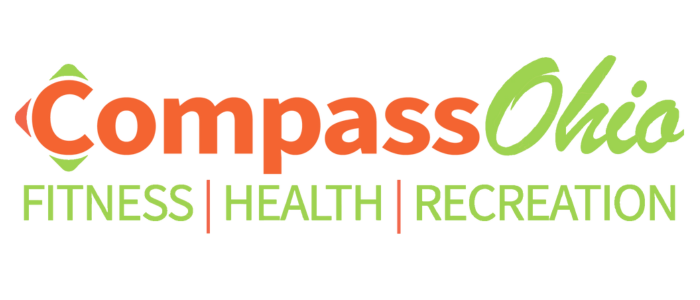It seems like there’s a never ending list of new diets to try and research showing exactly why each diet is successful or why it will destroy your health. Let’s just clarify one thing before you read any more. I am not going to refer to “diets” anymore, but rather “nutritional styles” because a diet typically ends. We know if we want to continue seeing positive results, we need to be able to commit to the lifestyle that is giving us those results. Don’t get me wrong: you will slip up and you will have a bad day. But that doesn’t need to completely throw you off. If you are living a nutritional style then one bad meal will be just that….a bad meal. Your “normal” nutritional style will continue the next day and you won’t find yourself back at square one.

I want to share with you the two things you really need to define before choosing a specific nutrition style.
1. What is your ultimate goal? (i.e. weight loss, disease control, energy, increased muscle, etc.) Many of us want a quick ten pounds off for an event, but is that what we want for long term? We know that we can achieve that if we simply cut down on what we are eating but how long can you sustain a low calorie intake? Most people will last 2-3 days before completely blowing it. Figuring out your ultimate long-term goal will allow you to pick the nutrition style that is going to work long term for you.
2. What foods work best for your body? Every one of us is so different. Often we see what works for someone else and, without hesitation, jump into it with not so great results. Your chemical structure, heredity factor, and lifestyle needs are different than anyone else. Making sure that the diet fits your lifestyle and needs is important, but ultimately you need to know if it is safe for you to follow. We often enter a diet with positive intentions but end up sabotaging our health. We haven’t done the proper research, and we experience poor results or worse…unfavorable side effects.

Check out the nutritional lifestyles below and my opinions about them.
Vegan: This diet eliminates the consumption of all animal products including dairy, meat, honey, and even milk chocolate.
• Pros:
• Possibly the cleanest diet around
• Environmentally friendly
• High in anti-oxidants which leads to better overall health
• Often see weight loss as a long-term effect
• Most vegans gravitate to this diet because of principles rather than aesthetics which typically leads to long term commitment.
• Many healthy side-effects including lowered risk of heart disease and other illnesses linked to the additives in our food
• Cons:
• Limited sources of protein can lead to deficiencies
• Vegans can suffer from nutrient deficiencies due to an imbalanced diet
• Time consuming to learn and read labels
• Tough to find options at social events or eating out
• Takes time and research to figure out what is acceptable and what isn’t
Paleo: A diet based on the idea that we should eat how we were genetically designed to eat. This diet is primarily made up of lean proteins, fresh fruits, non-starchy vegetables, nuts and seeds, and plant based oils. It eliminates most grains, starchy vegetables, dairy, sugars, high fat meats, and most processed foods.
• Pros:
• Emphasizes whole foods
• Cuts out most “junk” in the form of additives, preservatives, chemicals, etc.
• It’s hard to overeat due to the limited amount of foods allowed
• This high protein diet is very conducive to building muscle and keeping a lean figure.
• Anti-inflammatory because of the fresh foods
• Increased satiety (feeling of fullness) due to high protein and fat intake
• Cons:
• The limited food options makes it a bit bland and cause feelings of deprivation
• Limited grain options can decrease your energy level
• Cutting out full food groups (dairy, grains) can have a negative impact on your body unless you find a replacement for those nutrients.
• The increase in protein can be an irritant to the tummy
• Can be time consuming
• Costly to maintain
• Is often ditched because it is difficult to follow
Weight Watchers: This diet simply tracks your nutrition intake using a point system. Each item is allocated a point based on the calories and fiber.
• Pros:
• Easy to adjust to your preferences
• Very structured and detailed in what’s expected
• Support available through online and in-person weigh-ins/meetings
• Helps with portion control while tracking
• Cons:
• Tracking takes time
• Doesn’t focus on clean foods
• Most people feel confident that they can continue without tracking and end up back at old habits once they discontinue the program
DASH (Dietary Approaches to Stop Hypertension): The DASH diet focuses on keeping your fat intake at 27% (6% Saturated) and protein at 18% while carbohydrates sit at 55% of your daily intake. Cholesterol is limited to 150 mg and fiber is at 20 grams.
• Pros:
• Great for specific health conditions such as lowering blood pressure and cholesterol thus reducing your risk of heart disease.
• Flexibility provided with a variety of food options
• Emphasizes whole and fresh foods
• Recommended by quite a few credible medical institutions
• Easy to make a part of your lifestyle
• Cons:
• The increase in fiber can have some temporary stomach discomfort
• Not as much structure can be hard to adjust to for some
• Not the quick fix most are searching for
• Tracking takes time to get accustomed to

TLC (Therapeutic Lifestyle Changes): Similar to DASH in the fat and cholesterol intake while also limiting daily sodium intake to 2400 mg or less.
• Pros:
• Simple and easy to understand
• Can be tailored to fit anyone’s nutritional needs
• Focuses on lifestyle changes to lower cholesterol levels
• A side effect is often weight loss but not intended for it
• Requires participants to become educated in order to read labels and calculate nutrients
• Includes exercise as a requirement
• Cons:
• Not as structured as some which can be hard for some people to jump into it
• The increase in fiber can cause tummy discomfort
• Time consuming to track and calculate
Carb Cycling: This eating plan option rotates between high carb and low carb days with a reward meal once a week. Your personal goals and needs are what determine how many high or low carb days you should be implementing and how many grams of carbs you should have per day.
• Pros:
• Less insulin is released causing less fat to be stored and more to be burned for fuel
• Causes lower levels of leptin which is released to prompt us to eat
• Serotonin is increased which boosts mood and aids in emotional eating
• Focuses on clean carbs so even on high carb days, you are getting the proper fuel
• This option can be very customizable to meet your needs and wants
• Great for those who are looking to lose the last 10-15 lbs and need some structure
• Makes the participant plan meals which promotes more mindfulness in eating
• Cons:
• Can be confusing because there isn’t a one size fits all formula
• Must track very specifically to get the results you want
• Have to research a bit to get your baseline numbers
• Can cause low energy and “hanger” on low carb days
• The initial weight loss although quick is a bit deceiving and can cause participants to be overly confident and then frustrated later

Clean Eating: This includes low sugar, gluten free, and no processed food plans. It focuses on eating foods that are without additives, have not been altered in any way, or contain additional ingredients.
• Pros:
• Promotes a healthy lifestyle
• Increases energy levels and metabolism
• Typically decreases fat stores and promotes a leaner body
• No specific foods you need to eat so you can eat according to your desires
• Decreases cravings due to lower leptin levels
• Over time will improve metabolism, mood, and gastrointestinal function
• Can aid in eliminating all kinds of diseases
• Cons:
• No structured plan
• Very strict and difficult to follow at first
• Can be costly unless you take the time to plan
I am often asked which is the best “diet” and the truth is there is no perfect nutritional style for everyone. The greatest thing about us is we were all created differently which means there is no one size fits all style of eating. Take the time to figure out which plan you can commit to for a lifetime. That is the plan that you will find the most success and results with.
Here is a great source to figure out which diet works for your goals: http://health.usnews.com/best-diet
What Diet Is Best For Me?






